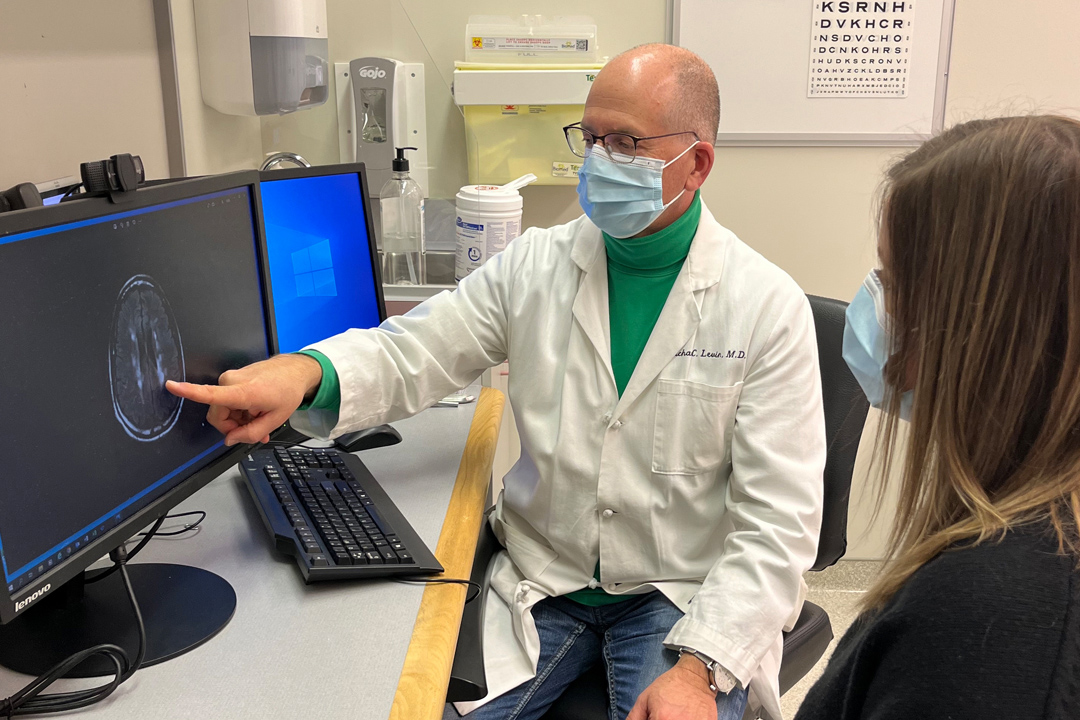
Saskatoon City Hospital Foundation Proud to Support Vital MS Research in Saskatchewan
Saskatoon City Hospital Foundation (SCHF) recently announced a gift of $750,000 to support the ongoing and crucial work of Dr. Michael Levin and his team in the area of multiple sclerosis research. It’s one of many acts of generosity and leadership that the foundation has shown in their decades-long history of supporting MS research in Saskatchewan.
In 1996, the Cameco MS Neuroscience Research Centre was established, with a primary research facility housed within Saskatoon City Hospital. MS research is a focal area in the province because of the high prevalence of the disease in Canada, particularly among Saskatchewan residents. In fact, Saskatchewan has one of the highest rates of MS in the world, with an estimated 3,700 people living with the disease.
The Cameco MS Neuroscience Centre provided MS research with a home base and increased visibility, but there was still a piece missing. When Dr. Katherine Knox and Dr. Valerie Verge made the case for a clinical research chair, SCHF knew it was the right move. In 2010, SCHF joined the College of Medicine and the Saskatchewan Health Research Foundation to create a clinical chair position and raise $5 million to support it.
“We put the cart before the horse a bit,” laughs Steve Shannon, CEO of SCHF. “The clinical chair was a long time in the making. It was tough to get a major donor in, because we didn’t have somebody identified to do the work.” Ultimately, fundraising succeeded in a very Saskatchewan way, moving steadily towards—and past—the goal through a series of events and a lot of community effort.
After years of planning and preparation, the search committee recruited Dr. Levin to Saskatchewan as the inaugural Chair in Multiple Sclerosis Clinical Research in 2017.
“During interviews, the big question from me was whether we could find somebody who was not only an excellent researcher but somebody willing to be a spokesperson for the work. And Dr. Levin was very excited about doing that part of the work, too,” Shannon says. Indeed, Dr. Levin has been an enthusiastic advocate from the start, dedicating time to interviews and media appearances to communicate new information uncovered by the team’s research.
“I’ve had many opportunities to hear Dr. Levin speak, and I can say that he makes his work as easy to understand as possible,” Shannon continues. “We have one of the best, most celebrated people on the planet here in Saskatoon, with an amazing team that’s working to find a cure to benefit people of Saskatchewan and people of the world.”
Since 2017, the research team has made incredible progress with Dr. Levin’s leadership. They have discovered that Epstein-Barr virus, which causes mononucleosis, is an environmental trigger that contributes to the development of MS. They have made lab-grown stress granules, allowing the team to study the stress granules in real time and design appropriate drug therapies. And they have discovered a drug treatment that addresses a critical protein abnormality present in MS patients.
Dr. Levin’s seven-year term as chair began in 2017, and while his initial term is coming to an end, there is clearly a need for the work to continue—and that’s where the SCHF’s recent gift comes into play.
“We decided that the foundation would gift $750,000 -- $250,000 each year for the next three years -- to keep the team in place and keep the research going,” says Shannon. Funding is a crucial part of continued research and discovery in this field, and the generosity and vision of Saskatoon City Hospital Foundation will benefit MS patients here at home and around the world.
To learn more about the exciting breakthroughs in MS research happening at the University of Saskatchewan, contact the College of Medicine.
